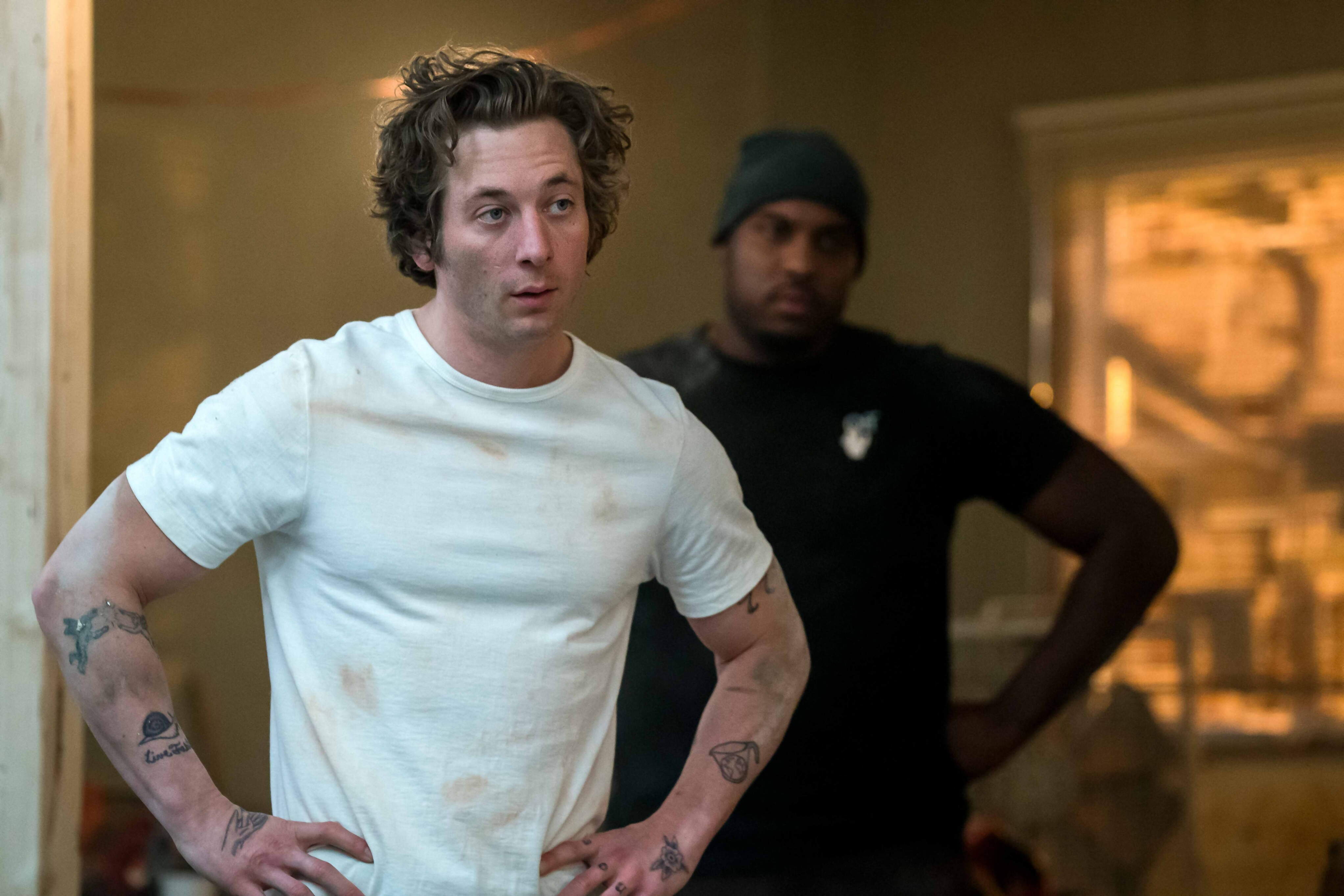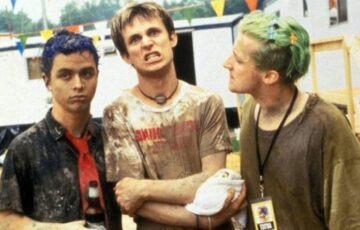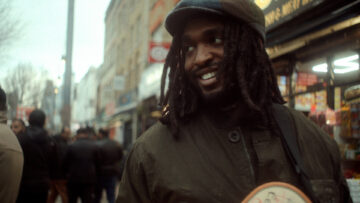“Here’s the thing: you’re terrible at this. You’re no good at it. Go faster, motherf***er. Keep going faster. Why are you so slow?” a chef barks in another one’s ear in the middle of service.
“Why are you so f***ing slow? You think you’re so tough. Say YEAH CHEF, I AM SO TOUGH.”
The opening of ‘Hands’, the epic second episode of FX’s The Bear (2022) is a tour de force of emotions. There is a physical pain in remembering being shouted at, being humiliated, and it translates brilliantly to the screen with every drop of sweat we see on Jeremy Allen White’s forehead.
“You are not tough. You are bullshit. You are talentless. You should be dead,” Joel McHale’s abusive chef spits at Carmy in the flashback episode.
The Bear, which returns for its second season on 19 July, ticks all the boxes of an addictive kitchen drama: fast tempo, urgency in the acting, dysfunctional kitchen families, and things that tend to go horribly wrong.
However, the show also brings something unique to the table. It taps into the heart of the professional kitchen, showing both the ugly, and sometimes empowering, side of learning your place in chef-whites and out of them. There are no easy wins.
The flashback scene in ‘Hands’ works as an opening into what’s coming next, from Carmy transforming the way The Beef operates to the dysfunctional kitchen family narrative being overturned in favour of something new and hopefully, healthier.
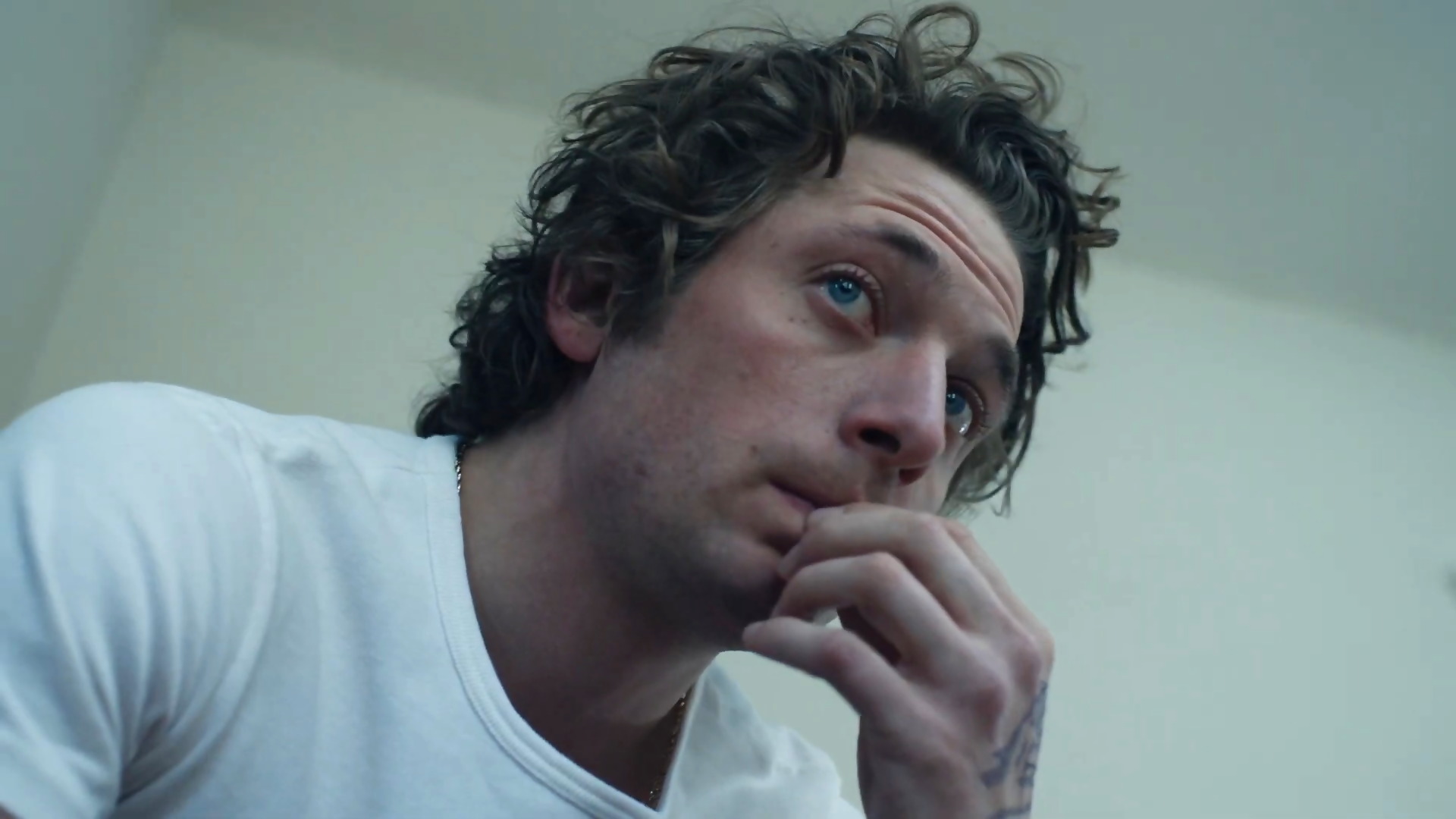
Jeremy Allen White as Carmy in The Bear. Credit: Disney+
The Bear brings to light a key aspect of working in professional kitchens: you can become your toxic mentor, or you can become someone else by the way you mentor others.
We are all familiar with scenes of verbal and physical violence in haute cuisine, from the negative enforcements of big-shot chefs like Gordon Ramsay on TV, to the fictional renditions of chaos such as Boiling Point (2021) and Big Night (1996).
The dynamics we see in The Bear and in real-life kitchens cannot be simply reduced to the toxic masculinity, the stress, or the bullying that often goes on in kitchen environments. They are rooted in an old system of mentorship, a hazing ritual of sorts. You “pay your dues”, no matter the cost.
Chef Steven Chiappetti, like Carmy, was born and bred in Chicago. He is also the head of an Italian-American restaurant whose menu is inspired by his Calabrian roots, The Albert. But the uncanny similarities in their experiences don’t end here.
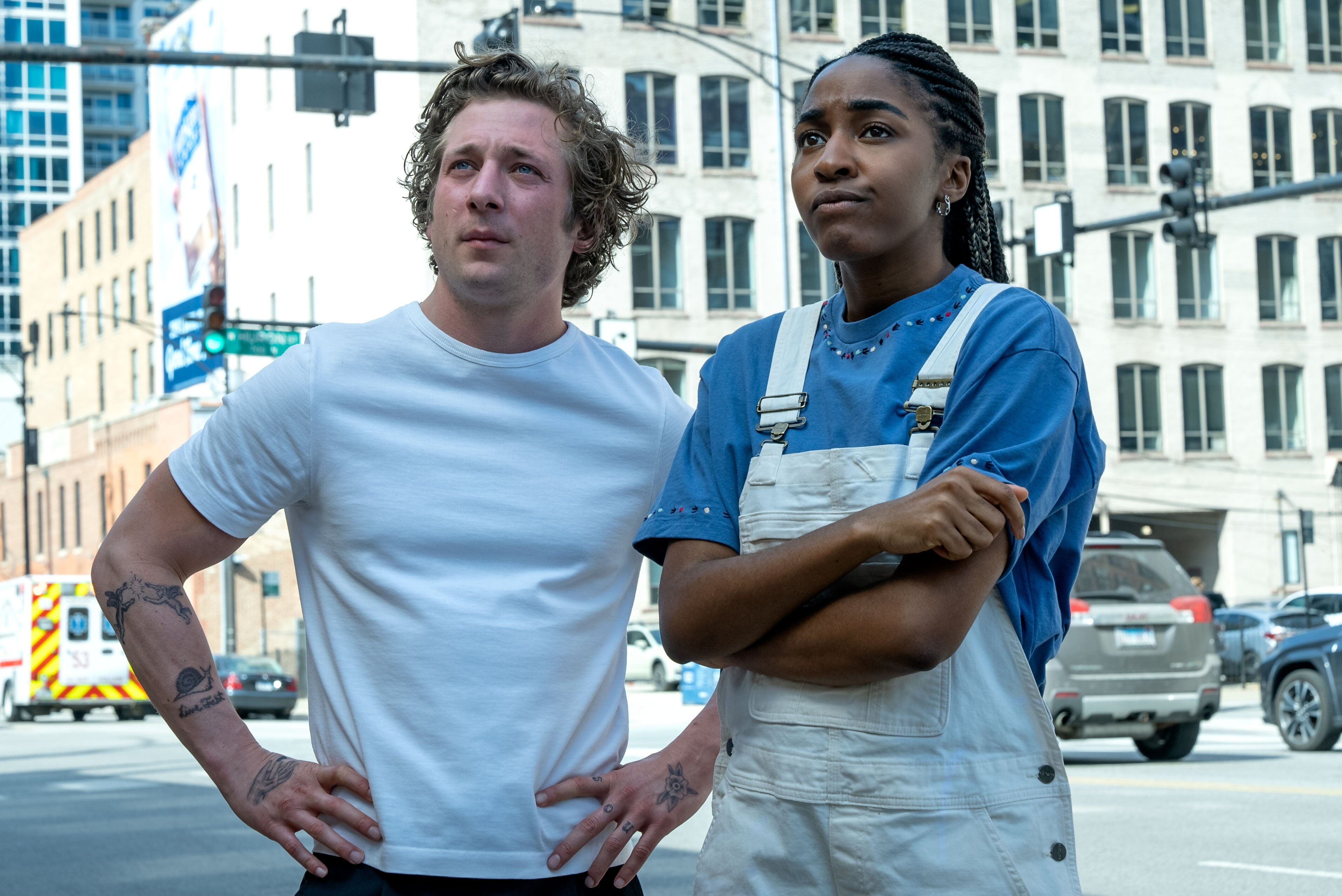
Carmy and Sydney’s relationship has been at the heart of The Bear for two seasons. Credit: Disney+
“‘You’re not made for this. What are you doing?! Are you mentally capable of handling this job? Why are you even here?!’ You get the idea.”
Chef Chiappetti remembers being subject to the same level of verbal and physical abuse when learning the ropes in professional kitchens and being “the new guy”.
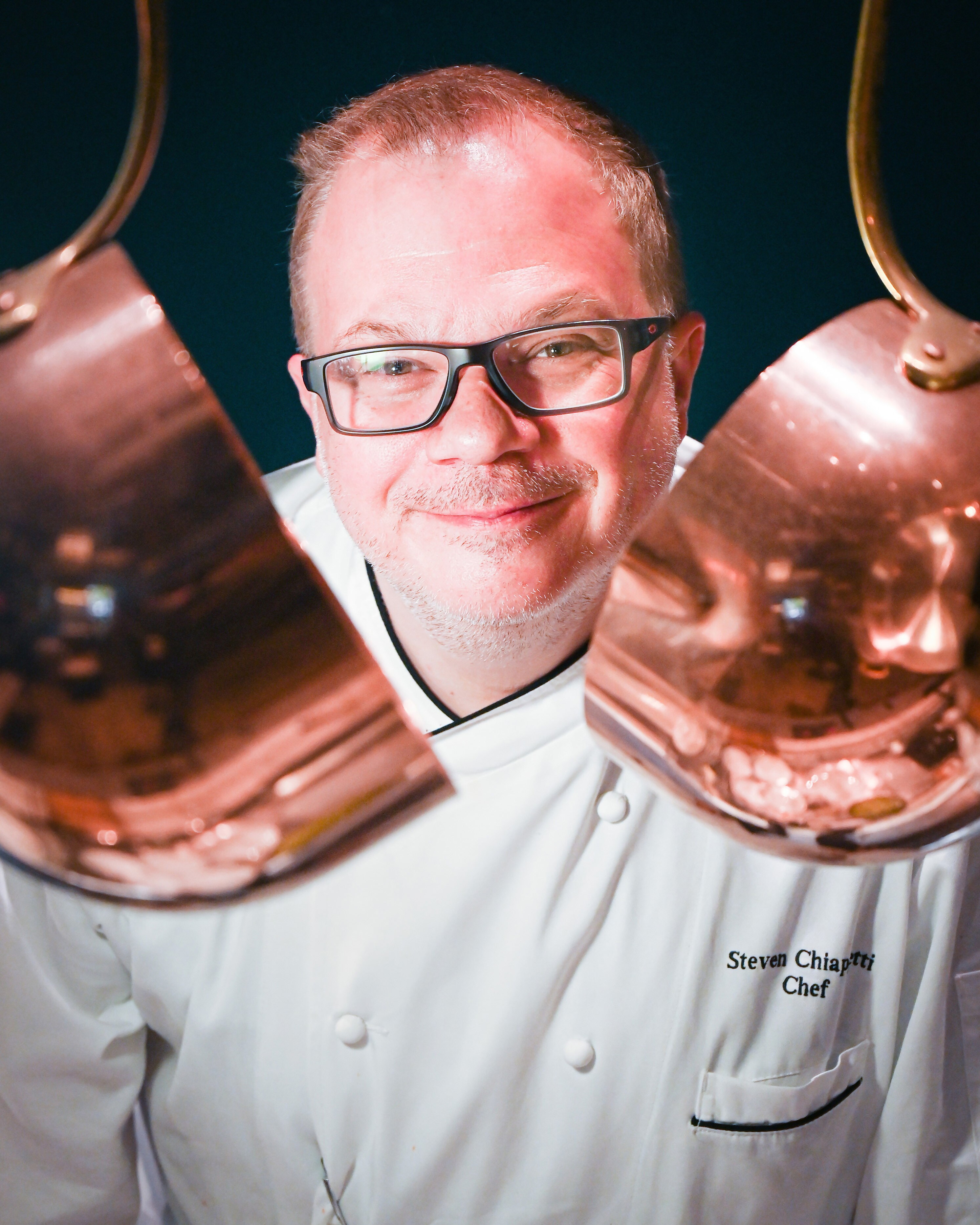
Chef Steve Chiappetti
“I saw and experienced physical abuse, watching a sous chef get punched in the face by the chef because his pickup of food wasn’t timely enough. I was once kicked because I left a cooler door open too long. I could tell you stories all day.”
“My beginning in this industry was just that, cooking in bullying environments filled with male testosterone similar to what we’ve seen in shows like The Bear.”
The connection between a predominantly male, hierarchical environment and a toxic, abusive one is almost a cliché, but I was curious to find out what part it played in professional kitchens today. This brought me to Chef Stephen Naylor, who is the Head Chef at Story Cellar.
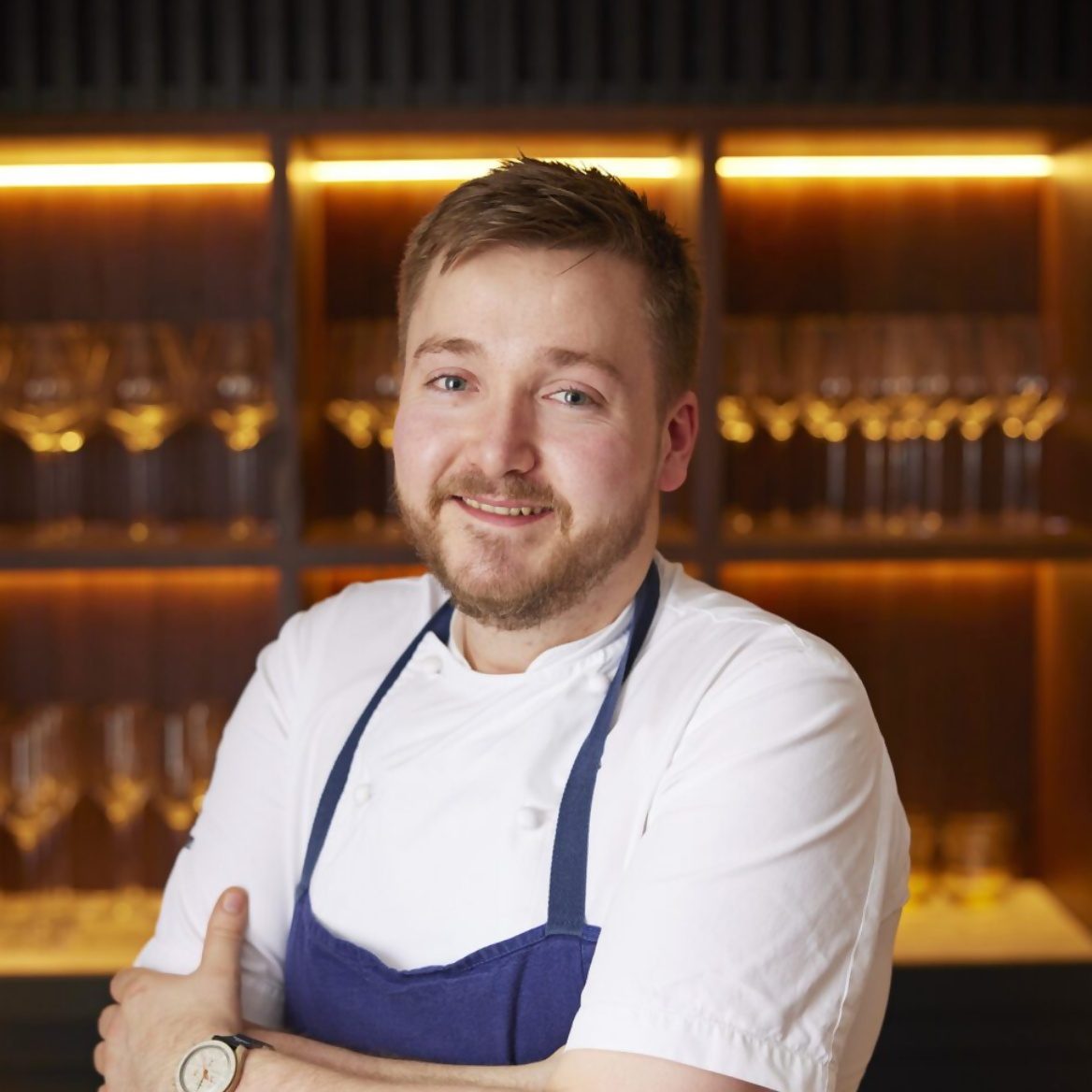
Chef Stephen Naylor
“My first 3 kitchens I worked in only had one woman in the team, being a very male-dominated profession”, said Chef Naylor, adding that nowadays there are roughly 30% more women, and that “with more women the environment in the kitchen is changing for the better”.
He mentions the likes of Gordon Ramsey and Phil Howard as his role models while training, as well as watching Boiling Point for the “drive and determination”, which both reflects on the gender ratio of renowned chefs, and on how popular media plays a part.
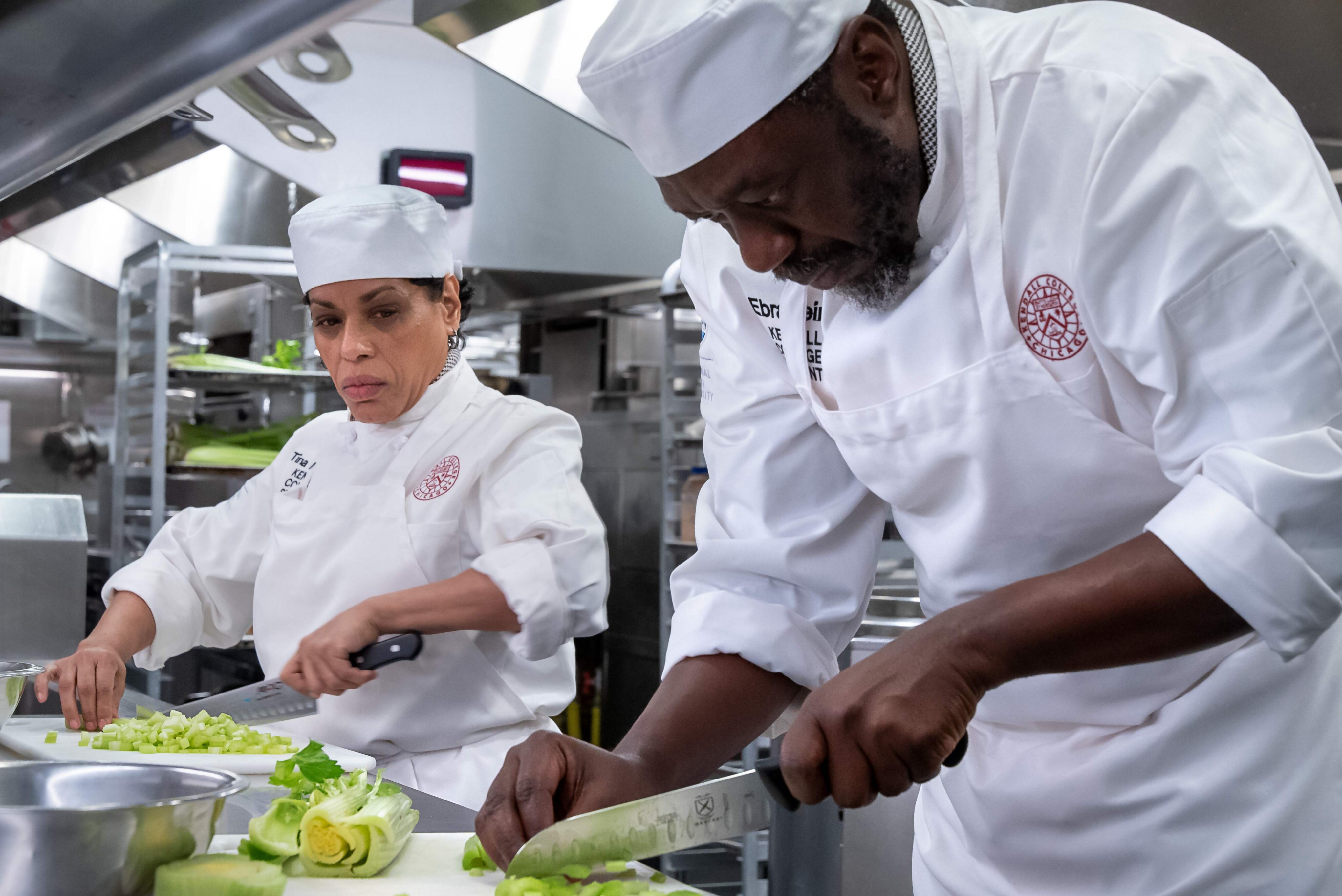
Credit: Disney+
“If you asked a senior chef 5-10 years ago, they would laugh at you if you brought up mental health”, he adds.
In The Bear, that same hostile environment towards mental health is in place before Carmy shows up at The Beef. Ever so slowly, throughout the course of the first ten explosive episodes of season one, it’s a topic that gets more and more attention – from grieving a loved one to discussing addiction and financial debt.
As we find in the very last episode of season one, ‘Braciole’, Carmy looked up to his brother Mikey so much he even partly molded his professional career to seek his validation. In Mikey, Carmy saw the mentor figure he wanted to impress just as much as the head chefs at the high-end restaurants.
“The mentorship of experienced chefs is invaluable for young culinary professionals”, adds Chef Devon Ferguson, Editor/Chef at Carnivore Style, “it offers guidance, support, and the opportunity to learn how to navigate high-stress environments”.
“Rather than allowing the testosterone-heavy environment to become a source of conflict, professionals in this kind of kitchen understand the importance of effective communication, mutual respect, and collaboration”, Chef Ferguson notes.
Chef Chiappetti seems to share the same principle, giving me an insight on what kitchens could become if, like in The Bear, we championed cooperation no matter how tough it gets.
“There are still chefs out there that operate in this “old school” way, but it’s ineffective, exhausting and most of all, unhealthy for everyone on the team.”
“One day when I look back on my work, I’ll be able to say that I’m proud of how I treated my teams – that my approach led to better training, improved camaraderie, higher quality cooking, better hospitality.”
He concludes, “It’s time for this to become the norm in kitchens everywhere.”
The Bear season 2 is streaming on Disney+ from 19 July.

